What is Ethereum? Why has it become the No. 2 in the crypto world?
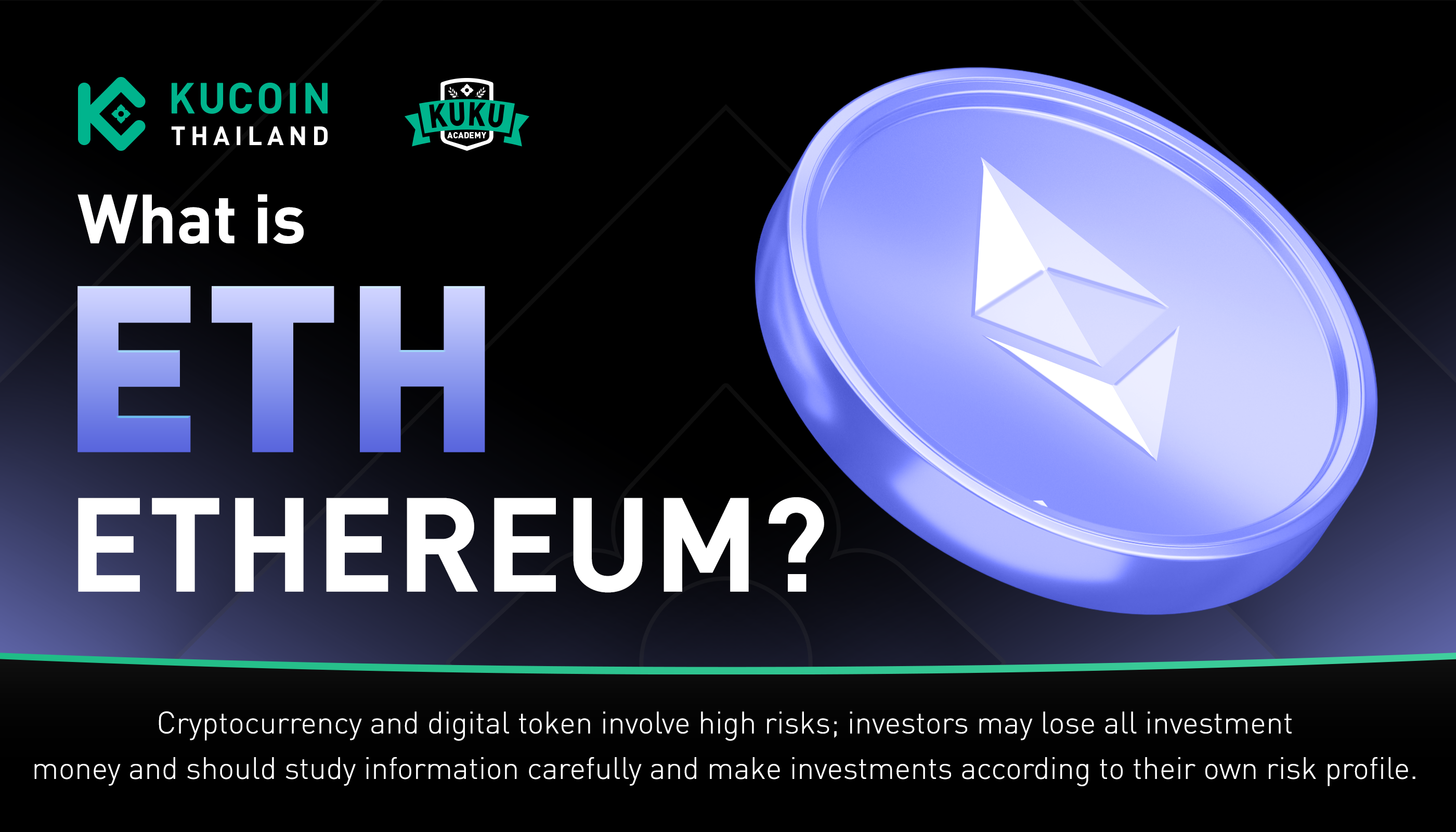
Get to know Ethereum, the world’s second-largest blockchain — explore its key features, Smart Contract system, and the reasons why Ethereum continues to dominate the market.
What is Ethereum and where did it come from?
Ethereum is a smart contract–based blockchain launched in 2015 by Vitalik Buterin and his team. It was designed to expand the capability of blockchain technology beyond simple money transfers — enabling the creation of decentralized applications (dApps) and smart contracts that can operate without intermediaries.
Ethereum is often called the second-generation blockchain because it builds upon the foundation of Bitcoin, introducing features that support programmable logic and more complex transactions.
Check the Ethereum price today in real time — updated every second so you won’t miss a single market move.
Key Terms Related to Ethereum (ETH)
-
Ethereum (ETH)
The main digital currency of the Ethereum network
Used to pay transaction fees and stake for rewards
-
Smart Contract
An automatic program that runs on Ethereum
Executes when conditions are met without intermediaries
Example: An NFT sale contract automatically releases tokens and transfers the NFT to the buyer once payment is complete
-
dApps (Decentralized Applications)
Applications that run on Ethereum in a decentralized manner, without a central server
Example: NFT games, DeFi exchange platforms
-
Gas Fee
The fee required to run a transaction or Smart Contract
The more complex the transaction, the higher the Gas fee
-
EVM (Ethereum Virtual Machine)
A virtual machine that runs all Smart Contracts and dApps
Makes Ethereum a blockchain that can run programs like a mini computer
-
Proof-of-Stake (PoS)
The transaction verification mechanism of Ethereum 2.0
ETH holders can stake ETH to help validate blocks and earn rewards (Currently, Thailand does not permit the staking of cryptocurrencies.)
-
Layer 2
Solutions that increase speed and reduce fees by connecting to the Ethereum Mainnet
Example: Arbitrum and Optimism are Layer 2 solutions for Ethereum
-
NFT (Non-Fungible Token)
Unique digital assets
Created and traded using Ethereum
Example: Digital art, music, or in-game NFT items
-
DeFi (Decentralized Finance)
Decentralized financial services on Ethereum
Example: Lending, depositing coins to earn interest, token exchanges
-
Staking
Locking ETH to help verify transactions and secure the network
Exchanging it for ETH rewards as passive income
(Currently, Thailand does not permit the staking of cryptocurrencies.)
How Does Ethereum Work?
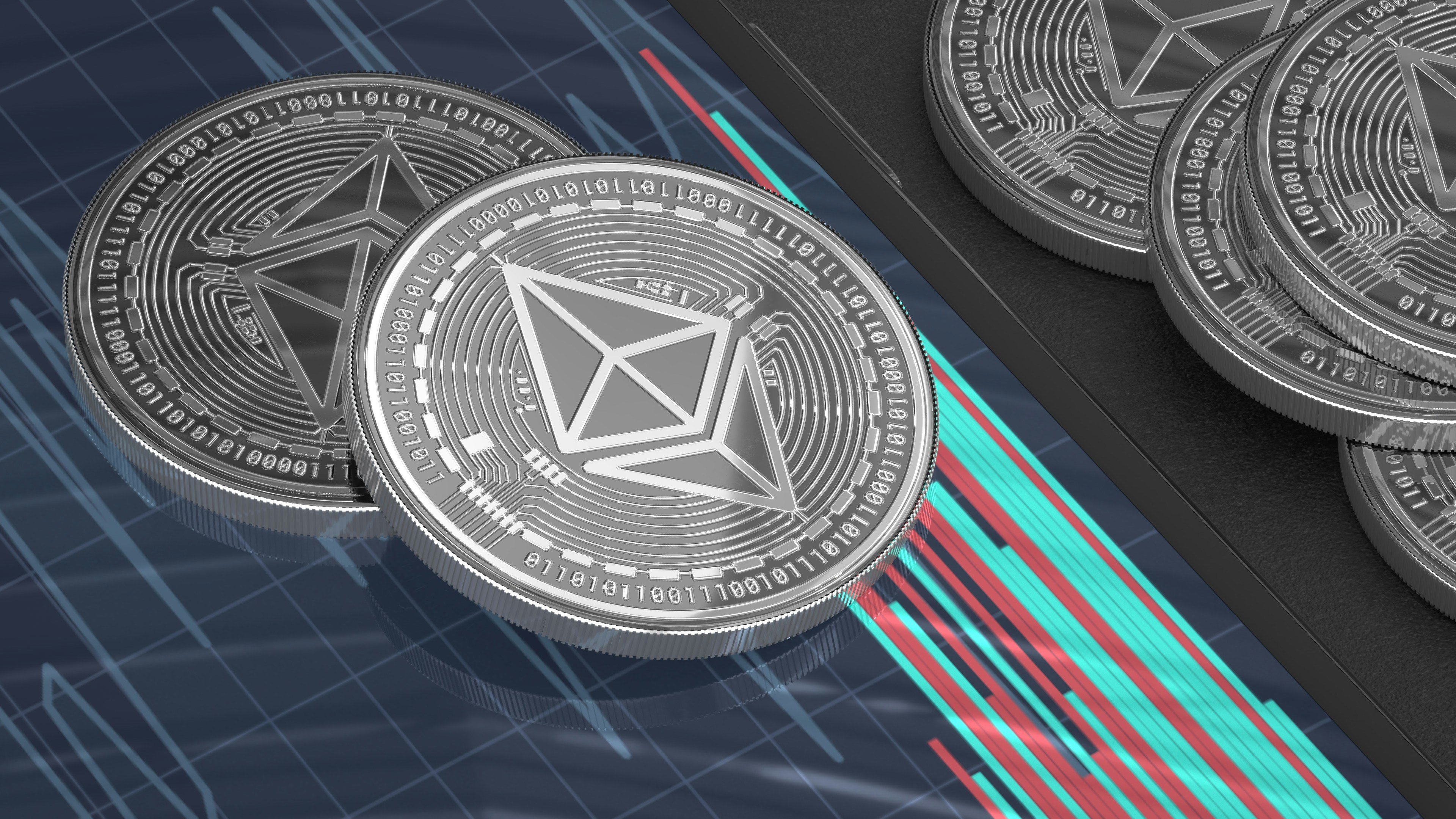
Ethereum is a blockchain developed as an extension of Bitcoin, not only for transferring coins but also for running automatic programs called Smart Contracts, which execute on their own when conditions are met without relying on intermediaries, making transactions transparent and verifiable.
For example, in NFT trading, the system automatically transfers coins and the NFT to the buyer immediately.
Transactions and running Smart Contracts on Ethereum require a fee called Gas Fee, which depends on the complexity of the transaction and the network congestion. If there are many users or complex transactions, the fee increases. Conversely, when the network is less busy, the fee is lower.
Ethereum Virtual Machine (EVM)
All operations occur on the Ethereum Virtual Machine (EVM), which acts like a machine running Smart Contracts and decentralized applications (dApps). This allows Ethereum to be a blockchain that can process programs like a mini computer, ensuring every transaction is securely verified and recorded on the network.
Key Advantages of Ethereum That Make It Popular Worldwide
Ethereum is a blockchain widely used around the world because it can run Smart Contracts and support dApps, DeFi, and NFTs comprehensively, allowing users and developers to continuously innovate on the network.
Smart Contract: Automatic programs that run on Ethereum when conditions are met without relying on intermediaries.
dApps Ecosystem: Supports various types of decentralized applications, such as games, finance, and NFT marketplaces, enabling users to access services without a central server.
DeFi and NFT: Ethereum serves as a base for decentralized financial services, such as lending, token exchanges, and NFT trading.
Layer 2 Solutions: Tools like Arbitrum and Optimism help increase speed, reduce fees, and expand the network, enabling faster transaction processing.
Proof-of-Stake (PoS): A secure and energy-efficient transaction verification system where coin holders can stake ETH to help validate blocks and earn rewards.
Large Developer Community: Drives continuous innovation, tools, and network upgrades.
How Are Ethereum and Bitcoin Different?
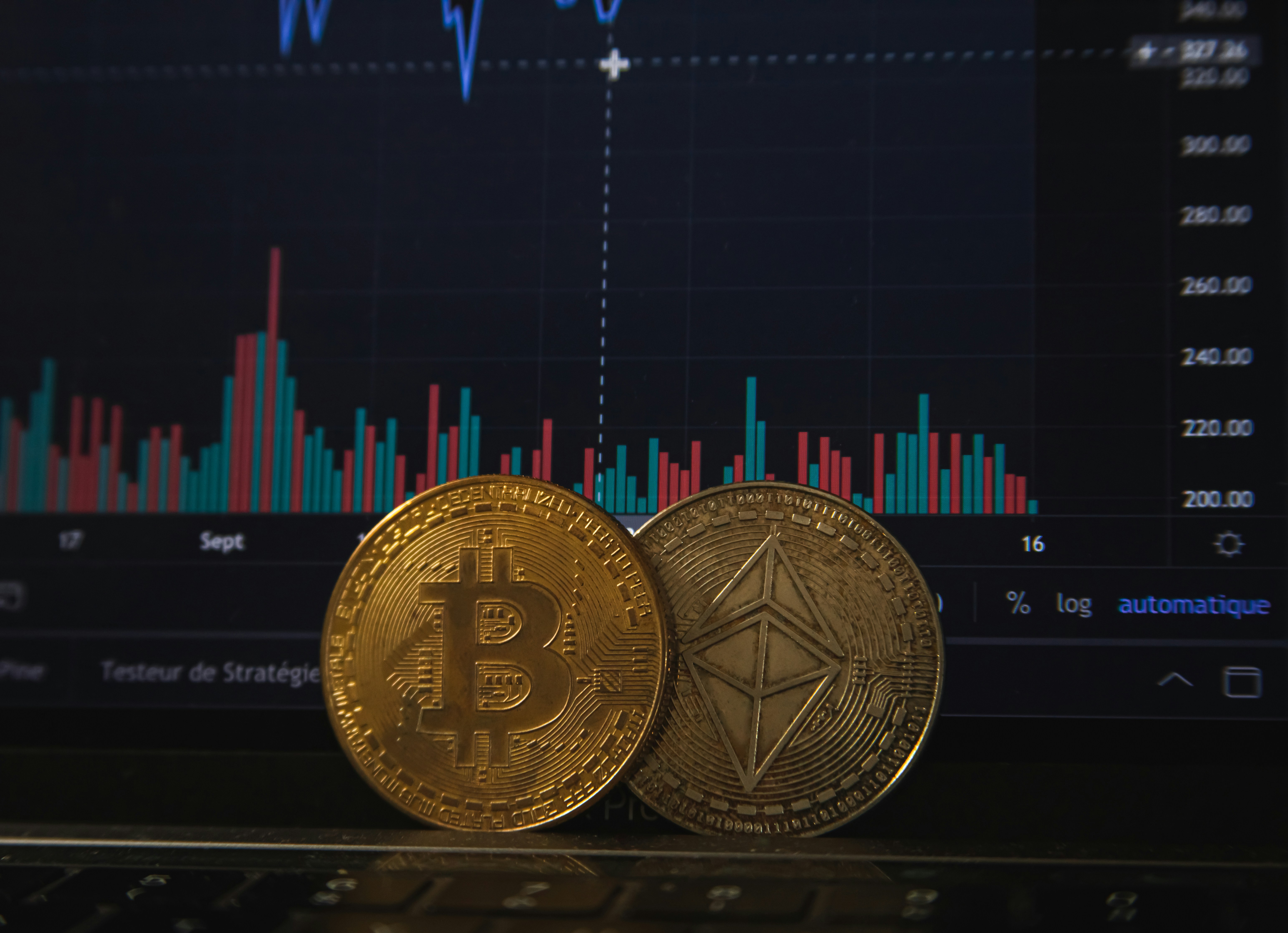
Bitcoin (BTC) and Ethereum (ETH) are two digital currencies that play important roles in the cryptocurrency ecosystem. Although both use blockchain technology and are decentralized, they have clearly different purposes and features.
Bitcoin was created in 2009 by an individual (or group) using the pseudonym Satoshi Nakamoto, with the primary goal of being a digital currency that can replace cash for online transactions and serve as a reliable store of value.
Bitcoin uses the Proof-of-Work (PoW) transaction verification mechanism, which requires energy for mining and processing transactions. It has a maximum supply of 21 million coins, giving it characteristics similar to digital gold.
Both cryptocurrencies are important in the crypto ecosystem:
-
Bitcoin focuses on being a store of value and a trusted digital currency.
-
Ethereum focuses on being a platform for creating and running decentralized and transparent applications.
Check the Ethereum price today in real time — updated every second so you won’t miss a single market move.
Comparison Table: Bitcoin vs Ethereum
|
Feature |
Bitcoin (BTC) |
Ethereum (ETH) |
|
Main Purpose |
Digital currency and store of value |
Platform for Smart Contracts and dApps |
|
Transaction Verification Mechanism |
Proof of Work (PoW) |
Proof of Stake (PoS) |
|
Maximum Supply |
21 million coins |
No fixed maximum supply |
|
Transaction Processing Speed |
Approximately 10 minutes per block |
Approximately 14–15 seconds per block |
|
Main Use |
Money transfer and store of value |
Creating and running applications on the blockchain |
|
Development Flexibility |
Limited |
Very high |
What is Ethereum 2.0?
Ethereum 2.0, or simply Eth2, is a major upgrade of the Ethereum network designed to address the limitations of the original Ethereum, particularly in transaction processing speed, security, and energy consumption.
Impact of Ethereum 2.0
-
Speed
Ethereum 2.0 uses Sharding technology, which divides the network into multiple parts, allowing thousands of transactions to be processed simultaneously. This greatly increases transaction speed and better supports high network usage.
-
Security
Ethereum 2.0 is designed to be more secure by using validators to verify transactions and blocks, reducing the chance of data tampering and increasing trust for the network and users.
-
Lower Energy Consumption
One of the key changes is the shift from Proof-of-Work (PoW) to Proof-of-Stake (PoS). This mechanism significantly reduces electricity usage for running the network, making Ethereum 2.0 more energy-efficient and environmentally friendly.
Real-world uses of Ethereum
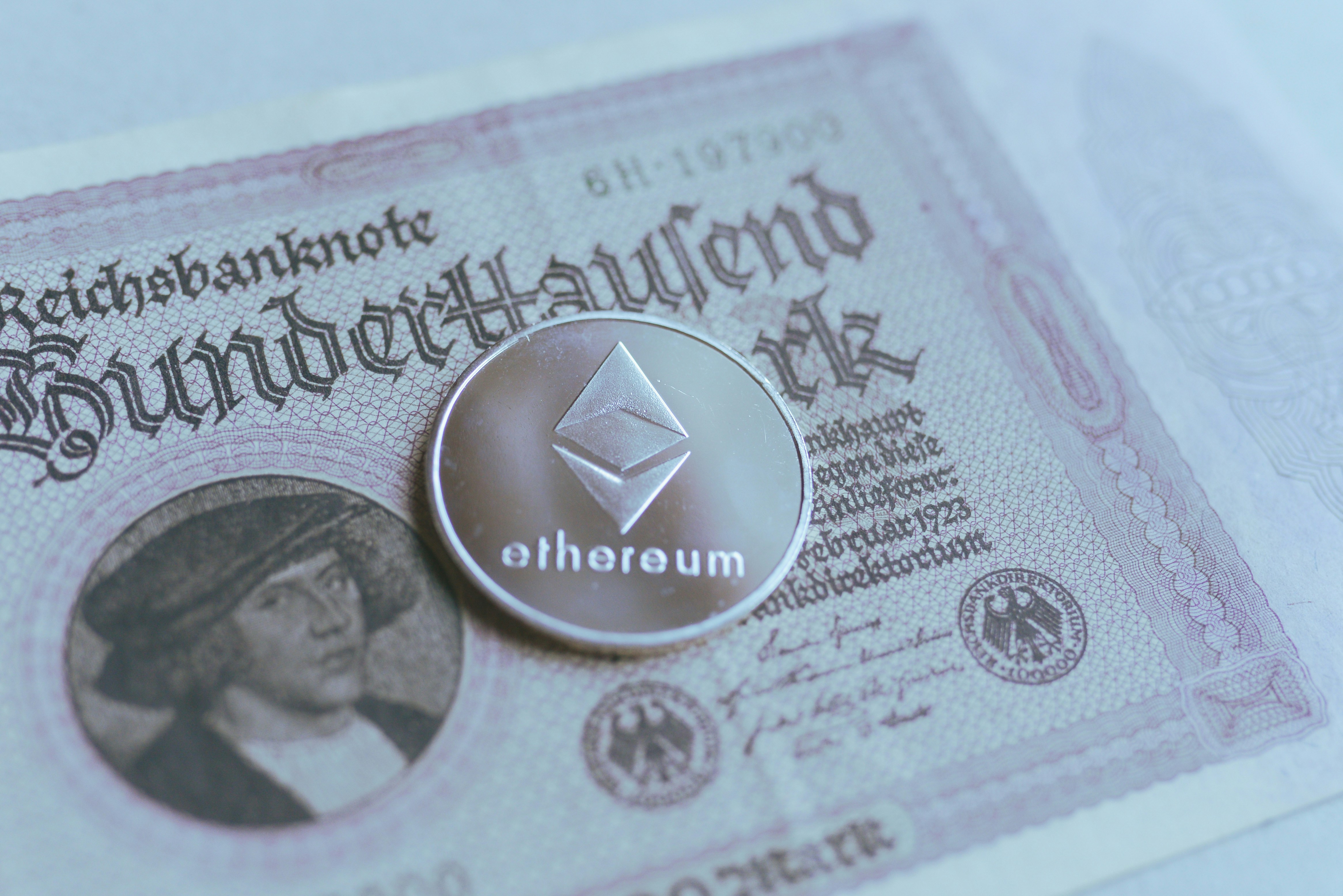
-
Ethereum is a flexible and versatile blockchain platform. It is not only used for transferring ETH coins but also serves as a key foundation for various applications and digital services, allowing users to easily access decentralized financial services, trade digital assets, enjoy blockchain games, and buy and sell NFTs.
-
Examples of Ethereum Use
Digital Assets Trading: Use ETH to buy, sell, or exchange various digital assets on blockchain platforms
DeFi (Decentralized Finance): Use ETH for borrowing, depositing coins, or Yield Farming to generate decentralized income
NFT Marketplace: Use Ethereum as the main currency to buy and sell NFTs on marketplaces like OpenSea
GameFi: Use Ethereum in blockchain games, such as Axie Infinity, where players can buy and sell in-game items and rewards using ETH
Is Ethereum a Good Investment? Should You Buy It?
Ethereum (ETH) remains one of the most interesting digital currencies for investment in 2025, supported by several factors that enhance its appeal.
Price Trends of Ethereum in 2025
Many analysts predict that Ethereum has long-term growth potential, with price forecasts for 2025 as follows:
-
Standard Chartered predicts a 2025 price of $7,500, based on increased industry adoption and growing Ethereum holdings in recent months.
-
Finder forecasts that Ethereum could surpass $6,100 by 2025 and may reach $12,000 by 2030.
-
Binance estimates a 2025 price of $4,586.04, with long-term growth potential.
Ethereum continues to be an attractive option for investors seeking digital assets with stability and long-term growth potential. However, investors should consider the risks associated with digital asset investments and carefully analyze information before making any investment decisions.
How to buy Ethereum and start investing?
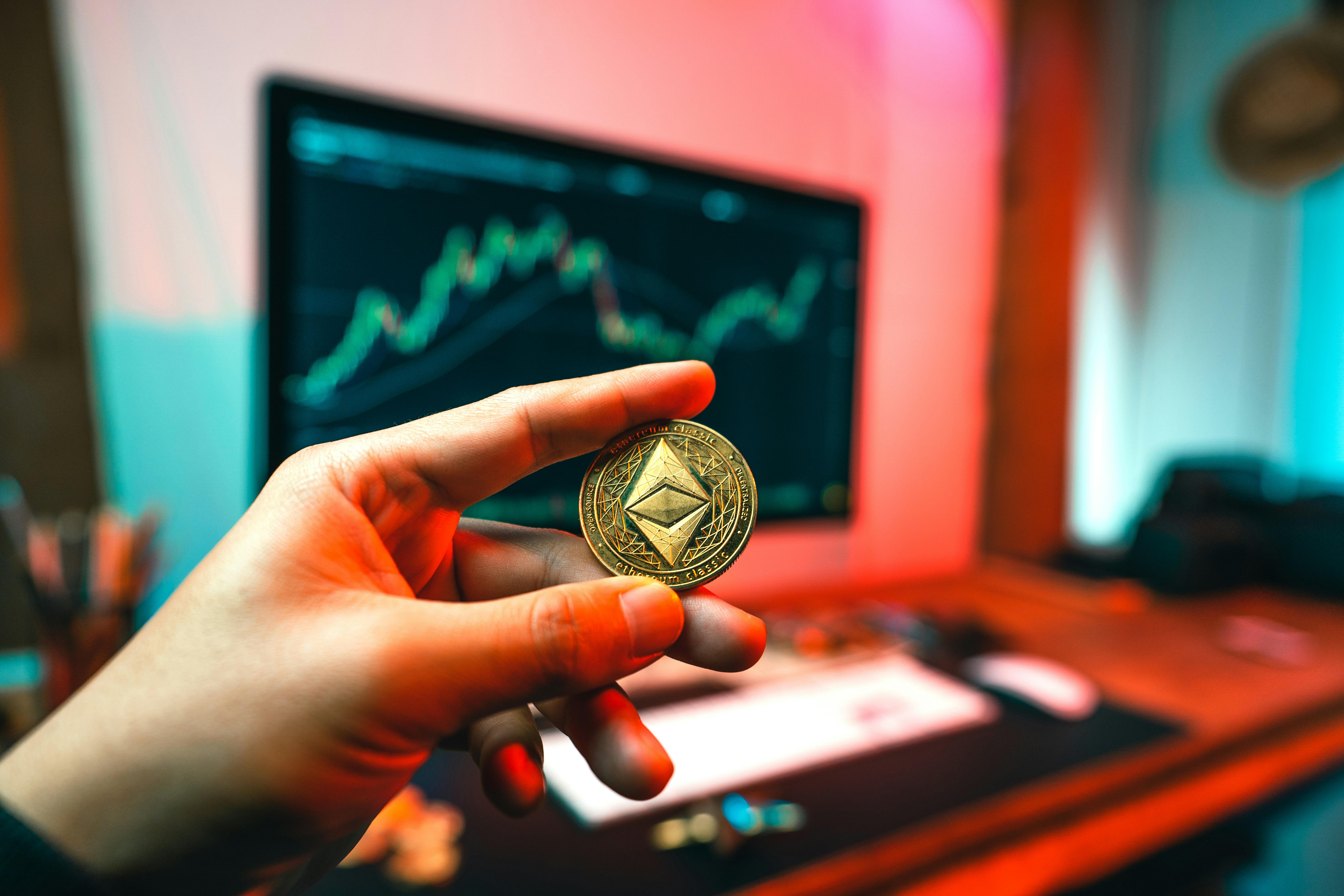
Getting Started with Ethereum (ETH) Investment
Investing in Ethereum (ETH) is easy through trusted crypto trading platforms like KuCoin Thailand, which supports buying ETH with various currencies, both digital and fiat.
Users can create an account, verify their identity, and deposit funds into their crypto wallet, then purchase Ethereum immediately.
Step 1: Sign Up for a KuCoin Thailand Account
Go to KuCoin Thailand, enter your email or phone number, set a password, and verify your account via email.
Step 2: Verify Your Identity (KYC)
To enhance security and enable full trading capabilities, verify your identity using an ID card or passport according to the system’s instructions.
Step 3: Deposit Funds into Your Account
You can deposit digital currencies or fiat money into your KuCoin Thailand account using convenient methods such as bank transfer, credit card, or depositing existing crypto.
Step 4: Buy Ethereum (ETH)
Once you have funds in your account, go to the Buy Crypto or Spot Trading page, search for ETH, select the amount you want to purchase, and confirm the transaction.
Step 5: Store Your Ethereum Safely
After purchase, you can keep ETH in your KuCoin Thailand Wallet or transfer it to a personal wallet for maximum security.
Step 6: Start Investing or Using ETH
You can hold your coins long-term or use them immediately in DeFi, NFT, or GameFi applications.
Buying Ethereum through KuCoin Thailand is convenient and ideal for beginners. If you don't have an account yet, sign up for KuCoin Thailand today and start investing in crypto with confidence.
Ethereum: Pros and Cons (Easy to Understand)
Ethereum is a flexible and popular blockchain platform, but it also has some limitations that investors should be aware of
Advantages of Ethereum
-
Smart Contract & dApps: Supports creating smart contracts and decentralized applications, allowing for versatile use cases
-
Ethereum 2.0: Upgraded to use Proof-of-Stake and Sharding, making transactions faster, more secure, and more energy-efficient
-
Large Community and Strong Ecosystem: A vast network of developers, investors, and crypto projects use Ethereum
-
Used in DeFi, NFT, GameFi: Suitable for investment, earning income, and accessing various digital services
Disadvantages of Ethereum
-
Variable Fees (Gas Fee): Even with Ethereum 2.0 improvements, fees can still be high when network usage is heavy
-
Complexity for Beginners: Understanding Smart Contracts, DeFi, and wallet management can be difficult for newcomers
-
High Competition: New blockchains like Solana and Avalanche are designed to compete with Ethereum in terms of speed and fees
Ethereum vs Other Investments
Investing in Ethereum (ETH) is clearly different from investing in traditional assets. While ETH is considered a digital asset with growth potential, it has characteristics and risks that differ from gold, stocks, or real estate.
ETH vs Gold
Both can serve as a store of value, but Ethereum is much more volatile than gold. This means it has the potential for high returns but also carries higher risk.
ETH vs Stocks
Stocks provide growth and dividends, whereas Ethereum does not pay dividends but can grow in value through market demand and usage in DeFi, NFT, and dApps. ETH’s volatility is generally higher than that of average stocks.
ETH vs Real Estate
Real estate has low liquidity, requiring time to sell and manage, but its value is relatively stable. Ethereum can be traded instantly worldwide, offering high liquidity but with significant price volatility.
Ethereum vs. other investments comparison table
|
Feature |
Ethereum (ETH) |
Gold |
Stocks |
Real Estate |
|
Growth |
High (depends on network usage) |
Medium-Low |
Medium-High (depends on the company) |
Medium |
|
Volatility |
High |
Low |
Medium-High |
Low-Medium |
|
Liquidity |
High (tradable globally instantly) |
Medium |
High |
Low |
|
Long-term Returns |
High/Highly Volatile |
Medium |
Medium-High |
Medium |
|
Minimum Investment |
Low |
High |
Medium |
High |
|
Additional Uses |
DeFi, NFT, dApps |
None |
None |
Practical Use |
When comparing Ethereum with traditional assets such as gold, stocks, and real estate, it is clear that Ethereum is highly flexible. It can be traded 24/7 through online platforms, allows for low initial investment amounts, and offers the potential for high returns from the growth of the crypto market. However, it also carries high volatility and legal risks.
Gold, on the other hand, is a safe asset but may provide slower returns. Stocks have growth potential based on the business and the economy but are also subject to market volatility.
Real estate generates income from rent and the appreciation of property value according to economic conditions but requires high initial investment and has low liquidity.
Therefore, investment decisions should consider both the risks and opportunities of each asset type to build a balanced portfolio that aligns with the investor’s goals.
How to Safely Store Ethereum
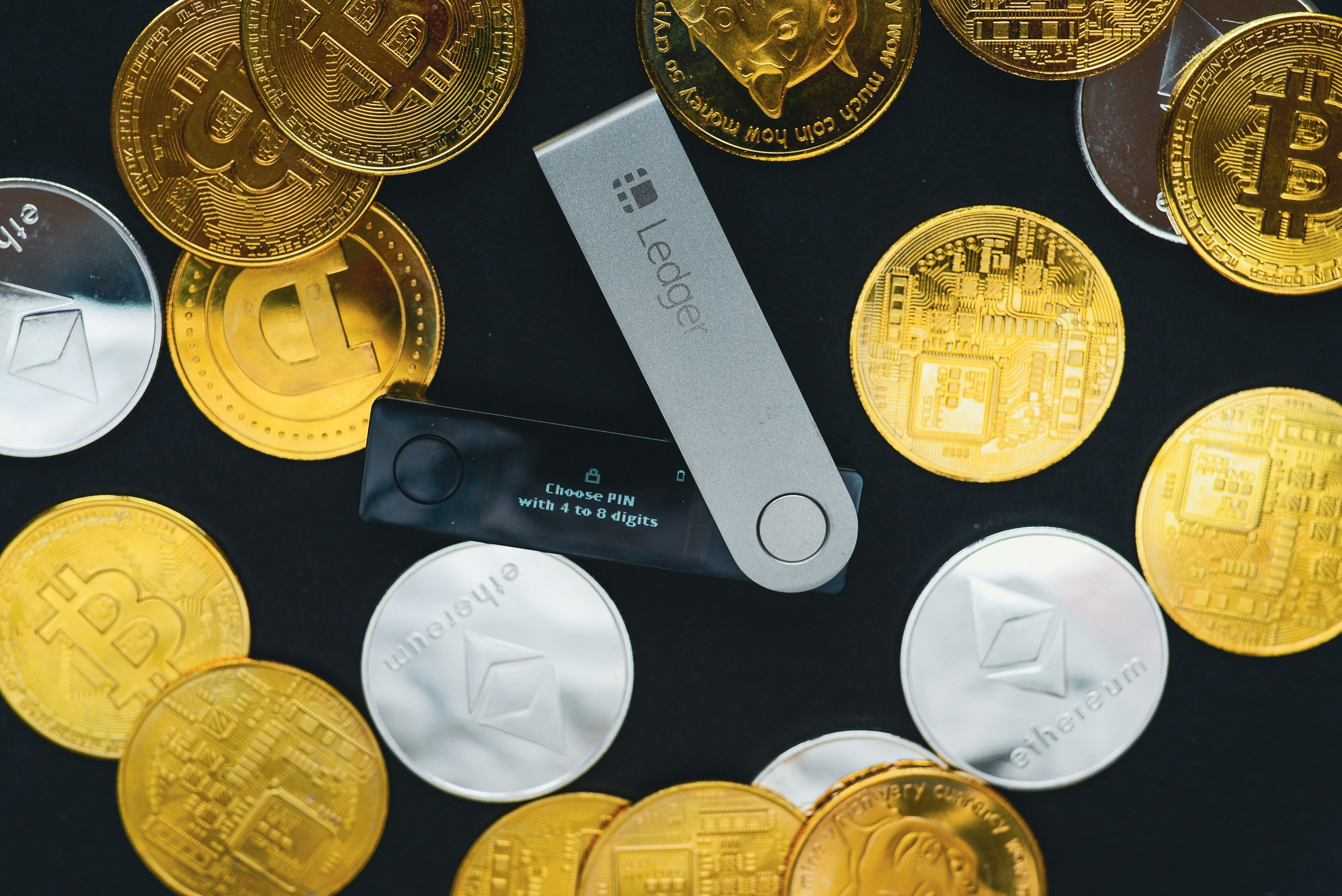
Safely storing Ethereum (ETH) is essential for investors of all levels to prevent loss or theft. Investors can choose to store their coins in a Hot Wallet or Cold Wallet, depending on convenience and the desired level of security.
Hot Wallet
A digital wallet connected to the internet, such as a mobile app, web wallet, or trading platform like KuCoin Thailand.
-
Advantages: Easy to use; allows instant buying, selling, and transferring of coins.
-
Risks: Higher security risk because it is always online.
Cold Wallet
An offline wallet, such as a hardware wallet (Ledger, Trezor) or paper wallet, which is not connected to the internet.
-
Advantages: Extremely secure; ideal for long-term holding of coins.
-
Disadvantages: Not convenient for immediate trading.
Latest Ethereum Situation Update (2025)
As of August 27, 2025, the situation of Ethereum (ETH) shows significant movements in price, DeFi and NFT usage, as well as related legal developments as follows:
ETH Price Situation
Ethereum reached a new all-time high of $4,946 USD in late August 2025, driven by inflows from financial institutions and increased network usage. Although the price is volatile, it remains in an upward trend.
DeFi & NFT Real Usage in 2025
The Total Value Locked (TVL) in Ethereum DeFi reached a peak of $97 billion USD this year, reflecting growth in adoption. Despite competition from other blockchains, Ethereum remains a leader in this sector.
The NFT market on Ethereum still holds over 62% market share, with total sales reaching $275.6 million USD in July 2025, demonstrating continuous growth of the NFT market on Ethereum.
Sources:
https://cointelegraph.com/news/nft-sales-july-2025-second-highest-average-sale-value
https://www.coindesk.com/markets/2025/08/26/ethereum-defi-lags-behind-even-as-ether-price-crossed-record-highs
Legal Developments
In 2025, there have been legal developments related to cryptocurrencies in several countries, particularly in the United States. New laws have been introduced to provide clearer guidance on classifying digital assets as securities or commodities and regulating the issuance of stablecoins, aiming to enhance stability and transparency in the crypto market.
FAQ Frequently Asked Questions about Ethereum
-
How much is 1 ETH in Thai Baht?
The price of 1 ETH fluctuates with the cryptocurrency market. Check the latest exchange rate with today's Ethereum price.
-
What Can ETH Be Used For?
-
Transaction Fees (Gas Fee): Every time ETH is sent or a transaction is made on Ethereum, ETH is used to pay for the processing of that transaction.
-
Creating and Running Smart Contracts: ETH is the “fuel” for executing smart contracts on Ethereum.
-
Investing in DeFi (Decentralized Finance): Users can invest ETH in DeFi projects, such as lending and earning interest.
-
Buying and Selling NFTs and Other Digital Assets: ETH is the main currency for trading NFTs and digital assets on marketplaces.
-
Long-term Investment: Beyond using ETH for transactions or participating in platforms, investors can hold ETH as a digital asset for speculation or long-term value storage.
-
How Many Ethereum Coins Are There?
Ethereum has no maximum supply. The amount of ETH increases over time according to the system, but after upgrading to Proof-of-Stake, new coin issuance has decreased.
-
Is ETH a Good Investment?
ETH is the second-largest crypto ecosystem after Bitcoin, with real use cases in DeFi, NFT, and Smart Contracts. It is suitable for long-term holding, but investors should be aware of price volatility.
-
Where to Buy Ethereum?
You can buy ETH on crypto exchanges such as KuCoin Thailand, which is a secure platform with reasonable fees.
-
How Are Bitcoin and Ethereum Different?
Bitcoin is a digital asset focused on store of value, while Ethereum is a blockchain platform used to create Smart Contracts and decentralized applications (dApps).
-
What Are the Benefits of Ethereum?
Ethereum is used to develop DeFi, blockchain games, NFTs, and decentralized applications, making it the most widely used blockchain in the world.
What is Ethereum in a nutshell?
Ethereum is a blockchain network designed not only for transferring digital currencies but also to support the creation of Smart Contracts and decentralized applications (dApps). This allows developers to build financial services, games, digital marketplaces, and various platforms without relying on traditional intermediaries such as banks or large corporations, making transactions more transparent, secure, and convenient.
The digital currency ETH serves both as a medium for transactions on Ethereum and as the “fuel” used to run smart contracts. Additionally, ETH is used for investing in DeFi and NFT marketplaces, enabling users to generate income and fully participate in the digital economy.
Ethereum has become a platform that allows people worldwide to create new innovations on the blockchain simultaneously, making it both a digital currency and a foundation for the modern digital economy, connecting users across multiple countries.
Trade ETH securely with Kucoin Thailand today! Register now in just a few easy steps. Click now!
⚠️ Disclaimer: Cryptocurrency and digital token involve high risks; investors may lose all investment money and should study information carefully and make investments according to their own risk profile.
KuCoin Thailand
(Operated by ERX Company Limited)
Email: happy@kucoin.th
- Website: www.kucoin.th
- Facebook: facebook.com/KuCoinThailand
- Facebook Community Group: facebook.com/groups/kucointhailandcommunity
- LINE Official Account: @KuCoinThailand
- Instagram: Kucointhailand
- X (formerly Twitter): x.com/KuCoinThailand
- Telegram: @KuCoinTH_Official
📲 Download the KuCoin Thailand app today!
👉 Click here to download Available now on both the Thailand App Store and Play Store.

